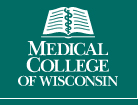Doxorubicin and Cyclophosphamide Plus Paclitaxel With or Without Trastuzumab in Treating Women With Node-Positive Breast Cancer That Overexpresses HER2
| Status: | Active, not recruiting |
|---|---|
| Conditions: | Breast Cancer, Cancer |
| Therapuetic Areas: | Oncology |
| Healthy: | No |
| Age Range: | 18 - Any |
| Updated: | 1/17/2019 |
| Start Date: | February 2000 |
| End Date: | March 2020 |
A Randomized Trial Comparing the Safety and Efficacy of Adriamycin and Cyclophosphamide Followed by Taxol (AC-T) to That of Adriamycin and Cyclophosphamide Followed by Taxol Plus Herceptin (AC-T+H) in Node-Positive Breast Cancer Patients Who Have Tumors That Overexpress HER2
RATIONALE: Drugs used in chemotherapy, such as doxorubicin, cyclophosphamide, and paclitaxel,
use different ways to stop tumor cells from dividing so they stop growing or die. Monoclonal
antibodies such as trastuzumab can locate tumor cells and either kill them or deliver
tumor-killing substances to them without harming normal cells. It is not yet known whether
combination chemotherapy plus trastuzumab is more effective than combination chemotherapy
alone for treating breast cancer.
PURPOSE: This randomized phase III trial is studying how well giving combination chemotherapy
together with trastuzumab works compared to combination chemotherapy alone in treating women
with node-positive stage II or stage IIIA breast cancer that overexpresses HER2.
use different ways to stop tumor cells from dividing so they stop growing or die. Monoclonal
antibodies such as trastuzumab can locate tumor cells and either kill them or deliver
tumor-killing substances to them without harming normal cells. It is not yet known whether
combination chemotherapy plus trastuzumab is more effective than combination chemotherapy
alone for treating breast cancer.
PURPOSE: This randomized phase III trial is studying how well giving combination chemotherapy
together with trastuzumab works compared to combination chemotherapy alone in treating women
with node-positive stage II or stage IIIA breast cancer that overexpresses HER2.
OBJECTIVES:
- Compare the cardiotoxicity of doxorubicin and cyclophosphamide followed by paclitaxel
with or without trastuzumab (Herceptin®) in women with operable, node-positive breast
cancer that overexpresses HER2.
- Compare the effect of these regimens on disease-free and overall survival of these
patients.
OUTLINE: This is a randomized, multicenter study. Patients are stratified according to number
of positive nodes (1-3 vs 4-9 vs 10 or more), administration of hormonal therapy (tamoxifen
vs anastrozole vs neither), surgery/radiotherapy (lumpectomy plus breast irradiation vs
lumpectomy plus breast irradiation plus regional irradiation vs mastectomy without
radiotherapy vs mastectomy with radiotherapy), paclitaxel schedule (every 3 weeks vs weekly),
and participating center. Patients are randomized to one of two treatment arms.
- Arm 1: Patients receive doxorubicin IV and cyclophosphamide IV over 30 minutes on day 1.
Treatment repeats every 21 days for 4 courses. Approximately 3 weeks after the last
course, patients receive paclitaxel IV over 3 hours every 21 days for 4 courses OR
paclitaxel IV over 1 hour once weekly for 12 weeks (12 doses).
- Arm 2: Patients receive chemotherapy as in arm I and trastuzumab (Herceptin®) IV over 90
minutes on day 1 of the first course of paclitaxel. Trastuzumab is then administered IV
over 30 minutes weekly for 51 weeks, beginning on day 8.
All patients with estrogen or progesterone receptor-positive tumors receive hormonal therapy*
for at least 5 years, beginning within 3-12 weeks after the last dose of chemotherapy.
Patients who have received prior tamoxifen for prevention may be treated with additional
tamoxifen for no more than 5 years at the discretion of the principal investigator (PI).
NOTE: *Other hormonal therapeutic agents are allowed in sequence with or as an alternative to
tamoxifen therapy.
All patients previously treated with lumpectomy undergo breast irradiation beginning after
completion of chemotherapy and concurrently with trastuzumab (in arm 2) administration.
Patients previously treated with mastectomy may also receive radiotherapy. Radiotherapy is
administered daily for 5-6 weeks.
Patients are followed every 6 months for 5 years and then annually thereafter.
PROJECTED ACCRUAL: A total of 2,700 patients will be accrued for this study within 4.75
years.
- Compare the cardiotoxicity of doxorubicin and cyclophosphamide followed by paclitaxel
with or without trastuzumab (Herceptin®) in women with operable, node-positive breast
cancer that overexpresses HER2.
- Compare the effect of these regimens on disease-free and overall survival of these
patients.
OUTLINE: This is a randomized, multicenter study. Patients are stratified according to number
of positive nodes (1-3 vs 4-9 vs 10 or more), administration of hormonal therapy (tamoxifen
vs anastrozole vs neither), surgery/radiotherapy (lumpectomy plus breast irradiation vs
lumpectomy plus breast irradiation plus regional irradiation vs mastectomy without
radiotherapy vs mastectomy with radiotherapy), paclitaxel schedule (every 3 weeks vs weekly),
and participating center. Patients are randomized to one of two treatment arms.
- Arm 1: Patients receive doxorubicin IV and cyclophosphamide IV over 30 minutes on day 1.
Treatment repeats every 21 days for 4 courses. Approximately 3 weeks after the last
course, patients receive paclitaxel IV over 3 hours every 21 days for 4 courses OR
paclitaxel IV over 1 hour once weekly for 12 weeks (12 doses).
- Arm 2: Patients receive chemotherapy as in arm I and trastuzumab (Herceptin®) IV over 90
minutes on day 1 of the first course of paclitaxel. Trastuzumab is then administered IV
over 30 minutes weekly for 51 weeks, beginning on day 8.
All patients with estrogen or progesterone receptor-positive tumors receive hormonal therapy*
for at least 5 years, beginning within 3-12 weeks after the last dose of chemotherapy.
Patients who have received prior tamoxifen for prevention may be treated with additional
tamoxifen for no more than 5 years at the discretion of the principal investigator (PI).
NOTE: *Other hormonal therapeutic agents are allowed in sequence with or as an alternative to
tamoxifen therapy.
All patients previously treated with lumpectomy undergo breast irradiation beginning after
completion of chemotherapy and concurrently with trastuzumab (in arm 2) administration.
Patients previously treated with mastectomy may also receive radiotherapy. Radiotherapy is
administered daily for 5-6 weeks.
Patients are followed every 6 months for 5 years and then annually thereafter.
PROJECTED ACCRUAL: A total of 2,700 patients will be accrued for this study within 4.75
years.
Inclusion criteria
- The patient must have a life expectancy of at least 10 years, excluding her diagnosis
of breast cancer. (Comorbid conditions should be taken into consideration, but not the
diagnosis of breast cancer.)
- The interval between the last surgery for breast cancer treatment (lumpectomy,
mastectomy, axillary dissection, or re-excision of lumpectomy margins) and
randomization must be less than or equal to 84 days.
- All of the following staging criteria must be met:
- Primary tumor must be T1-3 by clinical and pathologic evaluation.
- Ipsilateral nodes must be cN0-1 by clinical evaluation.
- Ipsilateral nodes must be pN1, pN2a, or pN3a by pathologic evaluation.
- M0
- Patients must have undergone either a total mastectomy and an axillary dissection or a
lumpectomy and an axillary dissection. Sentinel node biopsy is permitted, but must be
followed by an axillary dissection.
- The tumor must be invasive adenocarcinoma on histologic examination.
- The tumor must be determined to be HER2-positive prior to randomization. Assays
performed using fluorescent in situ hybridization (FISH) require gene amplification to
be eligible. Assays using immunohistochemistry (IHC) must be performed at an
NSABP-approved reference laboratory and require a strongly positive staining score.
- Patients must have an analysis of both estrogen and progesterone receptors performed
on the primary tumor prior to randomization. "Marginal," "borderline," etc., results
(i.e., those not definitely negative) will also be considered positive regardless of
the methodology used.
- At the time of randomization, the patient must have had the following: history and
physical exam, EKG, and PA and lateral chest x-ray within the past 3 months; and a
bilateral mammogram (or unilateral if patient has had a mastectomy) and a pelvic exam
(for women who have a uterus and who will be taking tamoxifen) within the past year.
- Within 3 months prior to entry, the patient must have a baseline left ventricular
ejection fraction (LVEF) measured by MUGA scan equal to or greater than the lower
limit of normal for the radiology facility. (If LVEF is > 75%, the investigator should
consider having the LVEF determination reviewed prior to randomization. Following
randomization, the LVEF determination may be reviewed up until the time of the post-AC
MUGA. Please note that if a more accurate value is obtained from the review of the
baseline MUGA, the corrected value must be submitted to the NSABP Biostatistical
Center before the post-AC MUGA is performed.)
- At the time of randomization:
- The postoperative absolute neutrophil count (ANC) must be ≥ 1500/mm3 (or
<1500/mm3 if, in the opinion of the investigator, this represents an ethnic or
racial variation of normal).
- Postoperative platelet count must be ≥ 100,000/mm3. Significant underlying
hematologic disorders must be excluded when the platelet count is above the upper
limit of normal for the lab.
- There must be postoperative evidence of adequate hepatic function, i.e., total
bilirubin must be ≤ ULN for the lab unless the patient has a chronic grade 1 bilirubin
elevation (>ULN to ≤1.5 x ULN) due to Gilbert's disease or similar syndrome; and
alkaline phosphatase must be <2.5 times the ULN for the lab; and the serum
glutamic-oxaloacetic transaminase (SGOT [AST]) must be <1.5 times the ULN for the lab.
- There must be postoperative evidence of adequate renal function (serum creatinine
within or less than the institution's normal range).
- Patients must have no clinical or radiologic evidence of metastatic disease.
Suspicious findings must be confirmed as benign by radiologic evaluation or biopsy. A
patient with skeletal pain is eligible for inclusion in the study if bone scan and/or
roentgenological examination fails to disclose metastatic disease.
- Patients with a history of non-breast malignancies are eligible if they have been
disease-free for 5 or more years prior to randomization and are deemed by their
physician to be at low risk for recurrence. Patients with the following cancers are
eligible if diagnosed and treated within the past 5 years: carcinoma in situ of the
cervix, melanoma in situ, and basal cell and squamous cell carcinoma of the skin.
- Prior to randomization, the investigator must designate whether the patients who had a
lumpectomy will receive local or locoregional radiation therapy. For patients who had
a mastectomy, the investigator must designate whether or not the patient will receive
radiation therapy. (Pre-randomization discussion and/or consultation with a radiation
oncologist is encouraged.) Note: Irradiation of any internal mammary nodes is
prohibited in this trial.
- Special conditions for eligibility of lumpectomy patients: irradiation and surgery
- Patients treated by lumpectomy and axillary node dissection to be followed by breast
radiation therapy must meet all the eligibility criteria in addition to the following:
Generally, lumpectomy should be reserved for tumors <5 cm. However, at the
investigator's discretion, patients treated with lumpectomy for tumors ≥ 5 cm are
eligible. The margins of the resected specimen must be histologically free of invasive
tumor and DCIS as determined by the local pathologist. In patients in whom pathologic
examination demonstrates tumor present at the line of resection, additional operative
procedures may be performed to obtain clear margins. This is permissible even if
axillary dissection has been performed. Patients in whom tumor is still present at the
resected margin after re-excision(s) must undergo total mastectomy to be eligible.
Whole breast irradiation is required. Irradiation of regional lymph nodes is optional,
but partial breast irradiation and irradiation of any internal mammary nodes are
prohibited in this trial. Intent to irradiate the axilla or other regional node groups
must be declared by the investigator prior to randomization for stratification
purposes.
- Special conditions for eligibility of mastectomy patients: irradiation. The decision
to use locoregional irradiation in patients who have undergone total mastectomy and
axillary node dissection must be declared by the investigator prior to randomization
for stratification purposes. Failure to adhere to the radiation therapy plan will be a
protocol violation.
Exclusion criteria
- Bilateral malignancy or a mass or mammographic abnormality in the opposite breast
suspicious for malignancy unless there is biopsy proof that the mass is not malignant.
- Primary tumor staged as T4 for any reason.
- Nodes staged as clinical N2 or N3 for any reason and nodes staged as pathologic pN2b,
pN3b, or pN3c.
- Prior history of breast cancer, including DCIS (patients with a history of lobular
carcinoma in situ [LCIS] are eligible).
- Treatment including radiation therapy, chemotherapy, biotherapy, and/or hormonal
therapy administered for the currently diagnosed breast cancer prior to randomization.
The only exception is hormonal therapy, which may have been given for up to a total of
28 days anytime after diagnosis and before randomization. In such a case, hormonal
therapy must stop at or before randomization and be re-started if indicated following
chemotherapy.
- Prior anthracycline or taxane therapy for any malignancy.
- Any sex hormonal therapy, e.g., birth control pills, ovarian hormonal replacement
therapy, etc. (These patients are eligible only if this therapy is discontinued prior
to randomization.)
- Therapy with any hormonal agents such as raloxifene (Evista®), tamoxifen, or other
selective estrogen receptor modulators (SERMs), either for osteoporosis or prevention.
(Patients are eligible only if these medications are discontinued prior to
randomization. These medications are not permitted while on the study except for the
use of tamoxifen as described in the protocol)
- Nonmalignant systemic disease (cardiovascular, renal, hepatic, etc.) that would
preclude a patient from being subjected to any of the treatment options or would
prevent prolonged follow-up.
- Cardiac disease that would preclude the use of Adriamycin, Taxol or Herceptin. This
includes:
- Active cardiac disease:
- angina pectoris that requires the use of antianginal medication;
- cardiac arrhythmia requiring medication;
- severe conduction abnormality;
- clinically significant valvular disease;
- cardiomegaly on chest x-ray;
- ventricular hypertrophy on EKG; or
- patients with poorly controlled hypertension, i.e., diastolic greater than 100
mm/Hg. (Patients with hypertension who are well controlled on medication are
eligible for entry.)
- History of cardiac disease:
- myocardial infarction documented as a clinical diagnosis or by EKG or any other
tests;
- documented congestive heart failure; or
- documented cardiomyopathy.
- Psychiatric or addictive disorders that would preclude obtaining informed consent.
- Pregnancy or lactation at the time of proposed randomization. This protocol excludes
pregnant or lactating women based on the fetal toxicity of both tamoxifen and Taxol
which are listed as Pregnancy Category D agents. Pregnant women who received tamoxifen
have experienced fetal deaths, birth defects, spontaneous abortions, and vaginal
bleeding. Women of reproductive potential must agree to use an effective barrier
method of contraception. Hormonal birth control methods are not permitted.
- Sensory/motor neuropathy ≥ grade 2, as defined by the NCI's Common Toxicity Criteria
version 2.0.
- Contraindications to corticosteroid use which, in the opinion of the investigator,
would preclude participation in this study.
- Concurrent treatment with other investigational agents.
- Sensitivity to benzyl alcohol.
- Special conditions for ineligibility of lumpectomy patients: irradiation and surgery.
For patients treated by lumpectomy with axillary dissection, breast irradiation is
required. Please see guidelines for radiation therapy in Appendix A. In addition, the
following patients will also be ineligible:
- Patients with diffuse tumors (as demonstrated on mammography) that would not be
considered surgically amenable to lumpectomy.
- Patients treated with lumpectomy in whom there is another clinically dominant
mass or mammographically suspicious abnormality within the ipsilateral breast
remnant. Such a mass must be biopsied and demonstrated to be histologically
benign prior to randomization or, if malignant, must be surgically removed with
clear margins.
- Patients in whom the margins of the resected specimen are involved with invasive
tumor or ductal carcinoma in situ (DCIS). Additional surgical resections to
obtain free margins are allowed. Patients in whom tumor is still present after
the additional resection(s) must undergo mastectomy to be eligible.
We found this trial at
142
sites
Farmington, Connecticut 06360
Click here to add this to my saved trials
115 Business loop 70 w
Columbia, Missouri 65203
Columbia, Missouri 65203
(573) 882-2100

Ellis Fischel Cancer Center at University of Missouri - Columbia At Ellis Fischel Cancer Center,...
Click here to add this to my saved trials
Medical City Dallas Hospital If you have concerns for your health, that of a family...
Click here to add this to my saved trials
City of Hope Comprehensive Cancer Center City of Hope is a leading research and treatment...
Click here to add this to my saved trials
CCOP - Greenville Cancer care in the last decade has made many advances. Most of...
Click here to add this to my saved trials
85 Retreat Ave # 2
Hartford, Connecticut 06102
Hartford, Connecticut 06102
Click here to add this to my saved trials
Cancer Research Center of Hawaii The University of Hawaii Cancer Center is the only National...
Click here to add this to my saved trials
Baylor College of Medicine Baylor College of Medicine in Houston, the only private medical school...
Click here to add this to my saved trials
200 Hawkins Drive
Iowa City, Iowa 52242
Iowa City, Iowa 52242
800-237-1225

Holden Comprehensive Cancer Center at University of Iowa Holden Comprehensive Cancer Center is dedicated to...
Click here to add this to my saved trials
11234 Anderson Street
Loma Linda, California 92354
Loma Linda, California 92354
(909) 558-4126

Loma Linda University Cancer Institute at Loma Linda University Medical Center Loma Linda University Cancer...
Click here to add this to my saved trials
CCOP - Mount Sinai Medical Center The Mount Sinai Community Clinical Oncology Program (MSCCOP) is...
Click here to add this to my saved trials
1400 South Orange Avenue
Orlando, Florida 32806
Orlando, Florida 32806
(407) 648-3800

M.D. Anderson Cancer Center at Orlando For more than twenty years, our cancer center has...
Click here to add this to my saved trials
4502 Medical Drive
San Antonio, Texas 78284
San Antonio, Texas 78284
(210) 567-7000

University of Texas Health Science Center at San Antonio The University of Texas Health Science...
Click here to add this to my saved trials
San Diego, CA 92120Bus: -
San Diego, California 92120
San Diego, California 92120
Click here to add this to my saved trials
Click here to add this to my saved trials
Click here to add this to my saved trials
Click here to add this to my saved trials
Click here to add this to my saved trials
Click here to add this to my saved trials
Click here to add this to my saved trials
5301 East Huron River Drive
Ann Arbor, Michigan 48106
Ann Arbor, Michigan 48106
1.877.590.5995

CCOP - Michigan Cancer Research Consortium The Community Clinical Oncology Program (CCOP) is a comprehensive...
Click here to add this to my saved trials
1365 Clifton Rd NE
Atlanta, Georgia 30322
Atlanta, Georgia 30322
(404) 778-1900

Winship Cancer Institute at Emory University Winship Cancer Institute of Emory University is Georgia
Click here to add this to my saved trials
Click here to add this to my saved trials
1120 15th Street, BAA-5407
Augusta, Georgia 30912
Augusta, Georgia 30912
(706) 721-2505

MBCCOP - Medical College of Georgia Cancer Center The Georgia Regents University (GRU) is located...
Click here to add this to my saved trials
Baltimore, Maryland 21237
Click here to add this to my saved trials
Click here to add this to my saved trials
Click here to add this to my saved trials
Click here to add this to my saved trials
Click here to add this to my saved trials
Click here to add this to my saved trials
Click here to add this to my saved trials
Click here to add this to my saved trials
Click here to add this to my saved trials
Click here to add this to my saved trials
101 Manning Drive
Chapel Hill, North Carolina 27514
Chapel Hill, North Carolina 27514
(919) 966-0000

Lineberger Comprehensive Cancer Center at University of North Carolina - Chapel Hill One of the...
Click here to add this to my saved trials
Click here to add this to my saved trials
1969 W Ogden Ave
Chicago, Illinois 60612
Chicago, Illinois 60612
(312) 864-6000

John H. Stroger, Jr. Hospital of Cook County The Level 1 Trauma Center is one...
Click here to add this to my saved trials
Click here to add this to my saved trials
Click here to add this to my saved trials
Click here to add this to my saved trials
Click here to add this to my saved trials
Click here to add this to my saved trials
Cleveland, Ohio 44106
Click here to add this to my saved trials
Click here to add this to my saved trials
Click here to add this to my saved trials
Columbus, Ohio 43210
Click here to add this to my saved trials
CCOP - Columbus As one of the original 20 CCOPs, the Columbus Community Clinical Oncology...
Click here to add this to my saved trials
Geisinger Medical Center Since 1915, Geisinger Medical Center has been known as the region’s resource...
Click here to add this to my saved trials
Click here to add this to my saved trials
Click here to add this to my saved trials
Click here to add this to my saved trials
Denver, Colorado 80010
Click here to add this to my saved trials
Click here to add this to my saved trials
300 East Locust St., Ste 350
Des Moines, Iowa 50309
Des Moines, Iowa 50309
(515) 244-7586
CCOP - Iowa Oncology Research Association The Iowa Oncology Research Association (IORA) was established by...
Click here to add this to my saved trials
Click here to add this to my saved trials
CCOP - Duluth The Duluth CCOP, established and funded by the National Cancer Institute (NCI)...
Click here to add this to my saved trials
Click here to add this to my saved trials
Click here to add this to my saved trials
Click here to add this to my saved trials
Click here to add this to my saved trials
100 Park Street
Glens Falls, New York 12801
Glens Falls, New York 12801
518.926.1000

Charles R. Wood Cancer Center at Glens Falls Hospital Glens Falls Hospital is the largest...
Click here to add this to my saved trials
CCOP - Grand Rapids The Grand Rapids Clinical Oncology Program (GRCOP) is a community cancer...
Click here to add this to my saved trials
Click here to add this to my saved trials
Click here to add this to my saved trials
Click here to add this to my saved trials
Click here to add this to my saved trials
Click here to add this to my saved trials
Click here to add this to my saved trials
800 Prudential Drive
Jacksonville, Florida 32207
Jacksonville, Florida 32207
904.202.2000

Baptist Cancer Institute - Jacksonville For more than 20 years, health care consumers have named...
Click here to add this to my saved trials
Click here to add this to my saved trials
Click here to add this to my saved trials
Click here to add this to my saved trials
Click here to add this to my saved trials
Click here to add this to my saved trials
Click here to add this to my saved trials
Long Beach, California 90813
Click here to add this to my saved trials
Click here to add this to my saved trials
Click here to add this to my saved trials
Click here to add this to my saved trials
Click here to add this to my saved trials
1475 NW 12th Ave
Miami, Florida 33136
Miami, Florida 33136
(305) 243-1000

University of Miami, Sylvester Comprehensive Cancer Center Sylvester Comprehensive Cancer Center integrates all cancer-related activities...
Click here to add this to my saved trials
Click here to add this to my saved trials
8800 W. Doyne Avenue
Milwaukee, Wisconsin 53226
Milwaukee, Wisconsin 53226
(414) 805-6840

Medical College of Wisconsin Cancer Center Cancer touches everyone in our community, and for many,...
Click here to add this to my saved trials
701 Park Ave
Minneapolis, Minnesota 55415
Minneapolis, Minnesota 55415
(612) 873-3000

Hennepin County Medical Center - Minneapolis Hennepin Healthcare System, Inc. operates Hennepin County Medical Center...
Click here to add this to my saved trials
Click here to add this to my saved trials
195 Little Albany St
New Brunswick, New Jersey 08903
New Brunswick, New Jersey 08903
(732) 235-2465

Cancer Institute of New Jersey at UMDNJ - Robert Wood Johnson Medical School As New...
Click here to add this to my saved trials
New Orleans, Louisiana 70112
Click here to add this to my saved trials
Click here to add this to my saved trials
Click here to add this to my saved trials
Newark Beth Israel Medical Center Newark Beth Israel Medical Center, a regional care, teaching hospital...
Click here to add this to my saved trials
Click here to add this to my saved trials
Click here to add this to my saved trials
CCOP - Bay Area Tumor Institute he Bay Area Tumor Institute Community Clinical Oncology Program...
Click here to add this to my saved trials
Click here to add this to my saved trials
Click here to add this to my saved trials
Orange, California 92868
Click here to add this to my saved trials
Click here to add this to my saved trials
Click here to add this to my saved trials
Click here to add this to my saved trials
Click here to add this to my saved trials
111 S 11th St,
Philadelphia, Pennsylvania 19107
Philadelphia, Pennsylvania 19107
(877) 503-8350

Kimmel Cancer Center at Thomas Jefferson University - Philadelphia The Kimmel Cancer Center at Jefferson...
Click here to add this to my saved trials










